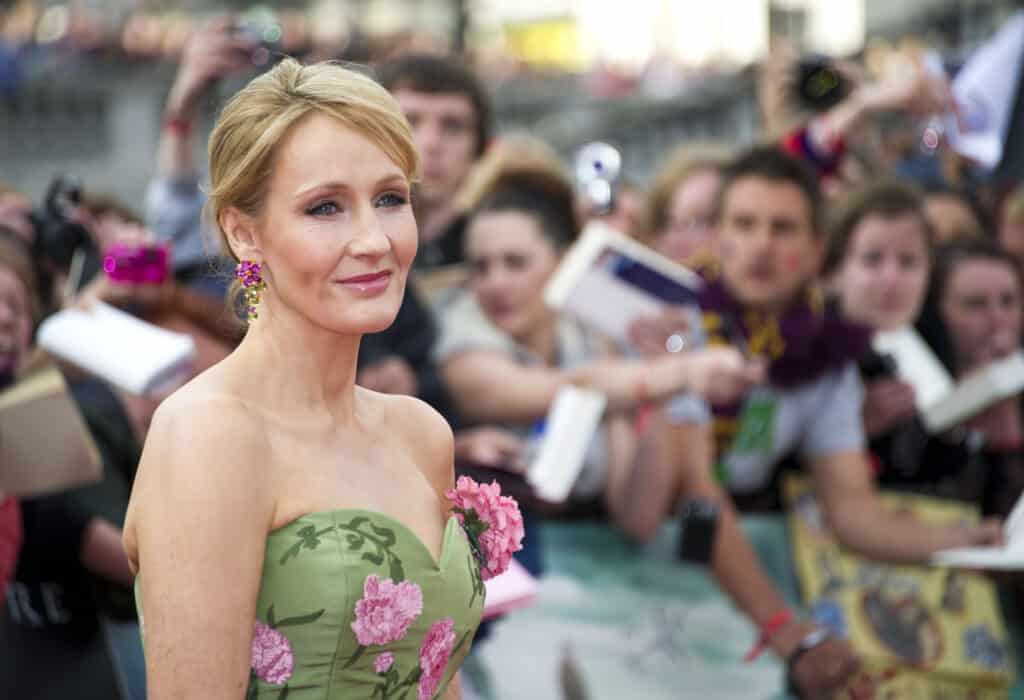The Harry Potter series has enjoyed unprecedented popularity in the decades since its release but has, at times, been criticized by religious groups. Is Rowling herself religious?
J.K. Rowling is a Christian. Rowling generally declined to discuss her faith openly until the release of the final novel in her series, “Harry Potter and the Deathly Hallows”, which she says was partly inspired by Christianity. The Harry Potter series has long been plagued by criticism from some religious groups.

For more on what we know about J.K. Rowling’s faith and the controversy that has surrounded her work, read on.
Rowling and Religion
In the early years of her author superstardom, J.K. Rowling was hesitant to discuss religion openly. This might have been due to the constant barrage of criticism that she and her novels received from the religious right.
One of the earliest examples of Rowling stating her religion comes from an October 2000 interview with “The Vancouver Sun”.
When asked directly if she is a Christian, Rowling stated that she was and also was keen to make clear that she doesn’t believe in the kind of magic present throughout the Harry Potter books. Rowling also feels that stating she believes in God offends her critics more than if she claimed to be an atheist.
The Potter series has always had morality at its core, with Rowling stating that she hopes the triumph of good over evil can be applied to the real world. While we are, thankfully, not under attack from evil magic users in our reality, Rowling hopes Harry Potter and his friends can serve as a good example of courage in the face of adversity and trying to do the right thing.
Her religious inspiration becomes far more apparent in the final book in the series, with the apparent death and resurrection of one of the heroes. This story arc has obvious parallels to the death and resurrection of Jesus in the New Testament.
The War on Potter
The Harry Potter series has been a target of criticism by religious groups since it first gained notoriety in the late 1990s. Chief among these have been American evangelical Christian groups, who have consistently attacked Rowling’s work for more than 20 years.
The accusations ranged from saying the series featured depictions of witchcraft that were incompatible with Christian beliefs to accusing Rowling of writing Satanic propaganda.
One of these critics, Richard Abanes, wrote a book entitled “Harry Potter and the Bible: The Menace Behind the Majick”. Abanes makes the distinction between everyday magic, the art of stagecraft and illusion, and magick, referring to occult practices.
He also makes a comparison between Rowling’s Wizarding World and Tolkien’s Middle-earth and Lewis’ Narnia.
He claimed that the spirituality present in the works of Rowling’s peers separates them from her and that they were clearly writing from a “Christian perspective”. Though, by her own words, so was Rowling.
Abanes’ main gripe seems to be that the stories of Tolkien and Lewis do not inhabit our own world and are thus disconnected from reality, seemingly unaware that Narnia is accessed from our world via a magical wardrobe.
Disdain for Rowling’s work is not an exclusively Christian issue, as schools in the United Arab Emirates have forbidden the novels since 2002, though they remain available in book stores.
The Catholic Church has no official position on the books, however, this has not stopped some regional groups, such as when a private school in Nashville removed the books from its library on the advice of “several exorcists”.
Despite the fervent outcry from some religious communities, it would be inaccurate to claim that they are anywhere near the majority. Many Christians are Harry Potter fans and, after actually reading the books, have praised the series’ sense of morality and its messages to young readers about doing the right thing.